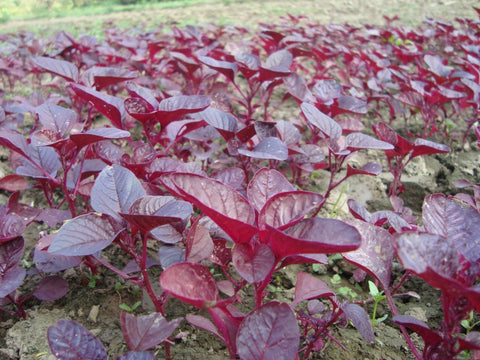Where Is Nitric Oxide Produced In the Body?
This article will answer an important question, namely, “Where is nitric oxide produced in the body?” Before diving into it, one should understand that various processes occur to create this vital gas.
Nitric oxide (NO) is a signaling molecule that plays a vital role in supporting overall health. A 1998 study from the Department of Anesthesiology and Intensive Care in Sweden discovered that nitric oxide is produced in the stomach and on the skin's surface.
The mouth is one entry point when exploring where nitric oxide is produced in the body. Dietary nitrate naturally occurs in foods like beets and red spinach, which then converts to nitrite when mixed with bacteria on the back of the tongue. The nitrite converts to nitric oxide as it continues down the gastrointestinal tract and into the stomach.
Nitric oxide gas is dispersed throughout the body to improve and maintain energy levels throughout the day. Studies answer a key question about this compound: What does nitric oxide do for the body?
Nitric oxide is often linked to its impact on sports endurance. One commonly studied component for athletes is the beetroot supplement, which is commonly used as a primary food-based nitric oxide booster. A 2017 study published by University Alfonso X El Sabio University discovered that beetroot might have performance-enhancing effects on cardiorespiratory endurance, benefiting athletic performance.
Where Is Nitric Oxide Produced in the Body?

Nitric oxide is produced in the endothelial cells, the single thick wall of cells that comprise the inner lining of blood vessels. Including an explanation of nitric oxide synthases (eNOS) is necessary to answer the question, “Where is nitric oxide produced in the body?”
Nitric oxide synthases are a family of enzymes responsible for most of the vascular nitric oxide our body produces. eNOS is found in human cell membranes, the semi-permeable barrier covering the surface of a cell to separate it from its surrounding environment. This semi-permeable barrier allows cells to communicate with neighboring cells. Inside the cells, eNOS oxidizes the amino acid L-arginine into the amino acid L-citrulline and then nitric oxide. Nitric oxide is then released from the cells to relax blood vessels.
Nitric oxide production lowers with age, and this decrease can be exacerbated by poor dietary choices, lack of exercise, and smoking. Individuals can support this NO production method by eating foods rich in L-arginine, like nuts and foods rich in L-citrulline like watermelon.
Dietary nitrate also converts to nitric oxide. A 1998 study from the Research Institute of Angiocardiology and Cardiovascular Clinic found that 70-80-year-old participants saw a 75% decrease in endothelium-derived nitric oxide compared to 20-year-old participants.
Therefore, supporting NO production with healthy lifestyle choices and dietary nitrate is essential, especially in older adults. A daily beetroot supplement can support healthy nitric oxide levels and may help combat signs of nitric oxide deficiency.
Another way to aid the body’s nitric oxide production is by eating nitrate-rich vegetables. Oral bacteria convert nitrates into nitrites which transform into nitric oxide in the body. This process can be supported by eating a healthy diet with plenty of nitrate-vegetables like red spinach or beetroot, alongside NO-protecting fruits like pomegranate.
A 2020 study from the Capital Medical University School of Stomatology suggests that this method of nitric oxide production may play an essential role in physiological and pathological conditions. The dispersion of nitric oxide may support anti-inflammatory benefits and body protection, playing a crucial role in overall health.
What does Nitric Oxide Do for the Body?
So, then, what does nitric oxide do for the body? That answer can be found in a 2013 study from the University of Reading, which assessed the potential heart-healthy properties of nitric oxide.
The study revealed that NO supports healthy blood pressure when used regularly alongside an active and plant-based lifestyle. Dietary nitrate is immensely popular among athletic communities, with solid evidence supporting endurance exercises. The body’s efficient use of oxygen is critical for supporting endurance, and nitric oxide can boost cell-to-cell communication, increasing oxygen dispersion throughout the body.
A 2018 study from TecnoCampus-Universidad Pompeu Fabra observed the impact of beetroot supplementation in a 30-second all-out sprint exercise. The participants taking beetroot juice experienced increased V02 Max and decreased time to exhaustion.
The study concluded that beetroot juice significantly improved individual performance levels compared to the placebo group. Nitric oxide may help support blood flow and oxygen to the muscles, which aids in a strong V02 Max. Maximum oxygen uptake may increase with regular training and nitric oxide boosters.
The pillars of performance are nutrition, training, recovery, and oxygen usage in the body. Since nitric oxide plays a significant role in supporting all of these, it is beneficial to a healthy lifestyle.
When people ask, “What does Nitric oxide do?” a clear and concise answer is that it improves endurance for athletes and aging adults.
How To Boost Nitric Oxide Naturally
To fully understand the question, “Where is nitric oxide produced in the body,” one should also ask how it is produced and what can be done to boost NO naturally.
First, consume a diet with nitrate-rich vegetables and antioxidant fruit. Dietary nitrates found in red spinach, beets, and dark, leafy greens help deliver significant amounts of dietary nitrate that converts to nitric oxide. Beetroot or red spinach supplements can also increase nitric oxide naturally.
Regular training paired with nitric oxide dump exercises are also beneficial to boost NO naturally. Breathing in through the nose stimulates nasal nitric oxide production and can also be combined with SKY meditation to increase inhaled nitric oxide levels. Time spent outdoors and sun exposure on the skin can increase dermal nitric oxide production.
To support the amino acid conversion, eat L-arginine-rich foods like walnuts, chia seeds, and pumpkin seeds or L-citrulline-rich foods like watermelon, cucumber, and chickpeas. You’ll discover many benefits when answering the question, “What does nitric oxide do for the body?” Implementing multiple methods to boost and support nitric oxide is an excellent way to increase a wellness regimen with healthy lifestyle additions.
References
Weitzberg E, Lundberg JO. Nonenzymatic nitric oxide production in humans. Nitric Oxide. 1998;2(1):1-7. doi: 10.1006/niox.1997.0162. PMID: 9706737.
Domínguez R, Cuenca E, Maté-Muñoz JL, García-Fernández P, Serra-Paya N, Estevan MC, Herreros PV, Garnacho-Castaño MV. Effects of Beetroot Juice Supplementation on Cardiorespiratory Endurance in Athletes. A Systematic Review. Nutrients. 2017 Jan 6;9(1):43. doi: 10.3390/nu9010043. PMID: 28067808; PMCID: PMC5295087.
Hobbs DA, George TW, Lovegrove JA. The effects of dietary nitrate on blood pressure and endothelial function: a review of human intervention studies. Nutr Res Rev. 2013 Dec;26(2):210-22. doi: 10.1017/S0954422413000188. Epub 2013 Oct 18. PMID: 24134873.
Cuenca E, Jodra P, Pérez-López A, González-Rodríguez LG, Fernandes da Silva S, Veiga-Herreros P, Domínguez R. Effects of Beetroot Juice Supplementation on Performance and Fatigue in a 30-s All-Out Sprint Exercise: A Randomized, Double-Blind Cross-Over Study. Nutrients. 2018 Sep 4;10(9):1222. doi: 10.3390/nu10091222. PMID: 30181436; PMCID: PMC6164999.





Comments (0)
There are no comments for this article. Be the first one to leave a message!